This project is now complete.
BCcampus and the Ministry of Post-Secondary Education and Future Skills would like to thank the many subject matter experts across the B.C. post-secondary system who contributed to the outcomes of these projects.
Warning: This section may contain language, images, or content that you may find disturbing; the subject matter is highly sensitive and can be triggering to those who have experienced trauma.
Training Resources
Synchronous Training
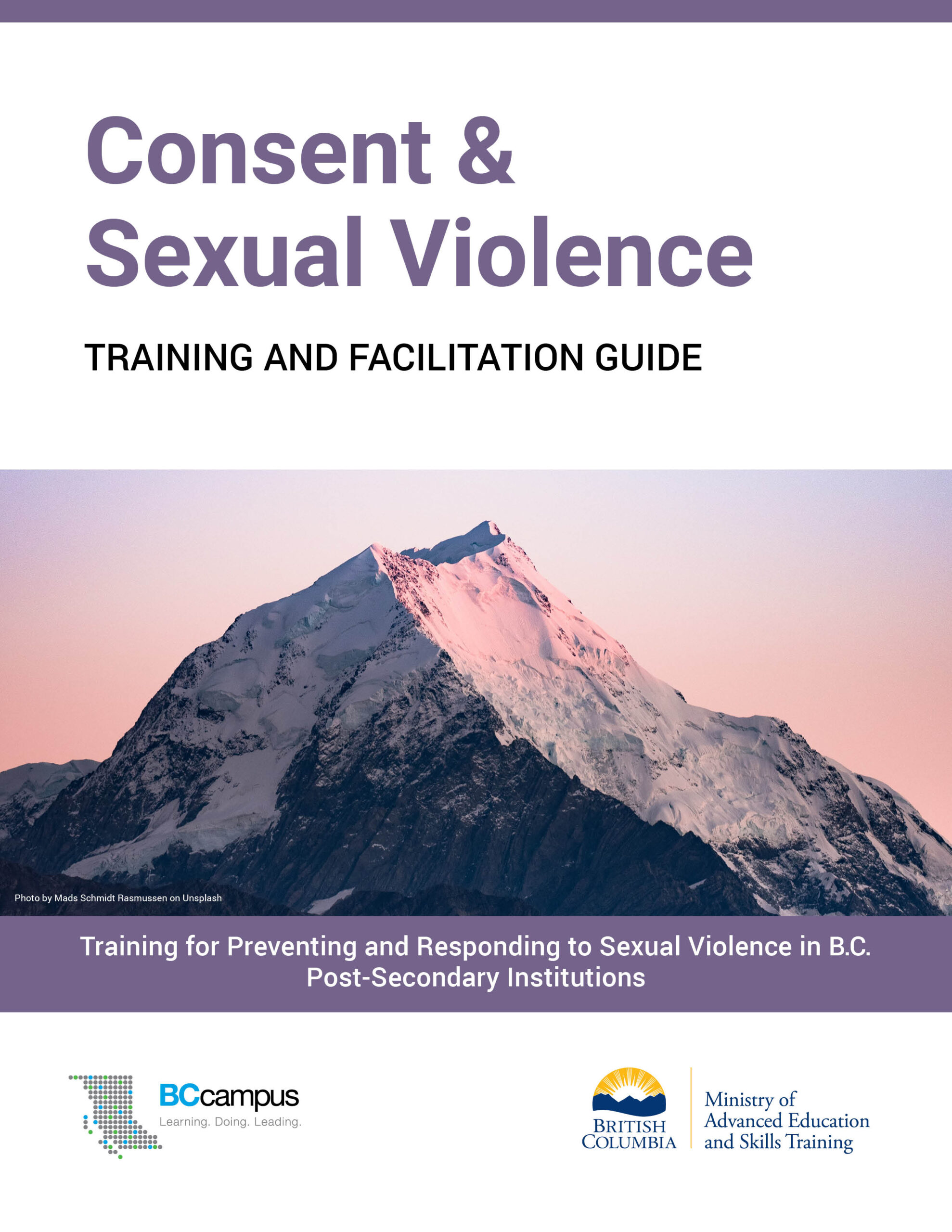
Consent & Sexual Violence: Training and Facilitation Guide
Training for Preventing and Responding to Sexual Violence in B.C. Post-Secondary Institutions
A workshop and facilitation guide to support B.C. post-secondary institutions to prevent and respond to sexual violence. Consent & Sexual Violence is a 90-minute workshop for all members of the campus community: students, faculty, administrators, and staff. This training explores different understandings of consent, including the legal definition. Learners have the opportunity to develop skills related to asking for and giving consent in all relationships as well as discuss strategies for creating a “culture of consent” in campus communities. (The slide deck that accompanies this resource can be downloaded from the Introduction).
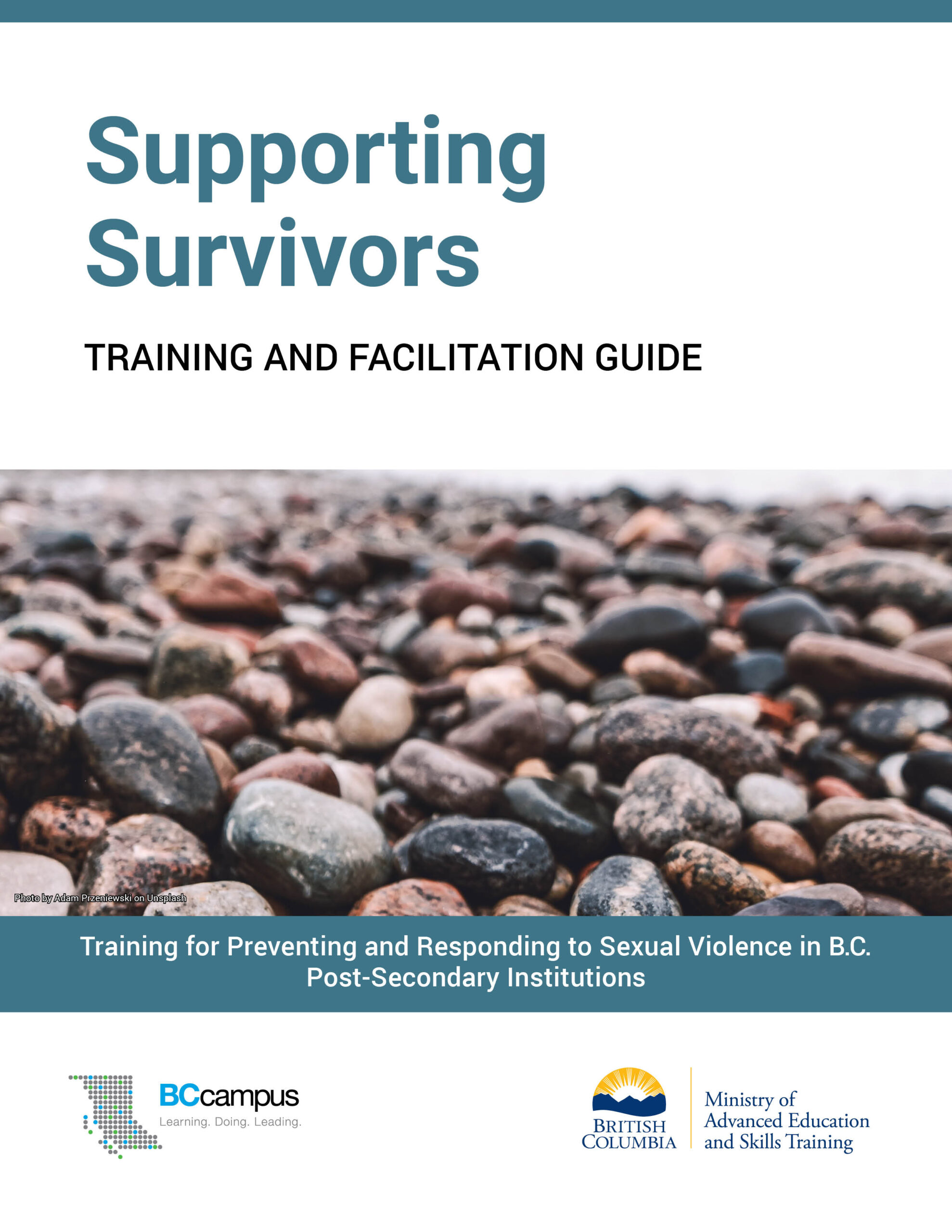
Supporting Survivors: Training and Facilitation Guide
Training for Preventing and Responding to Sexual Violence in B.C. Post-Secondary Institutions
A workshop and facilitation guide to support B.C. post-secondary institutions to prevent and respond to sexual violence. Supporting Survivors is a 90-minute workshop for all members of the campus community: students, faculty, administrators, and staff. This training helps learners respond supportively and effectively to disclosures of sexual violence. It includes a discussion of available supports and resources, the differences between disclosing and reporting, and opportunities to practice skills for responding to disclosures. Uses the Listen, Believe, Support model. (The slide deck that accompanies this resource can be downloaded from the Introduction).
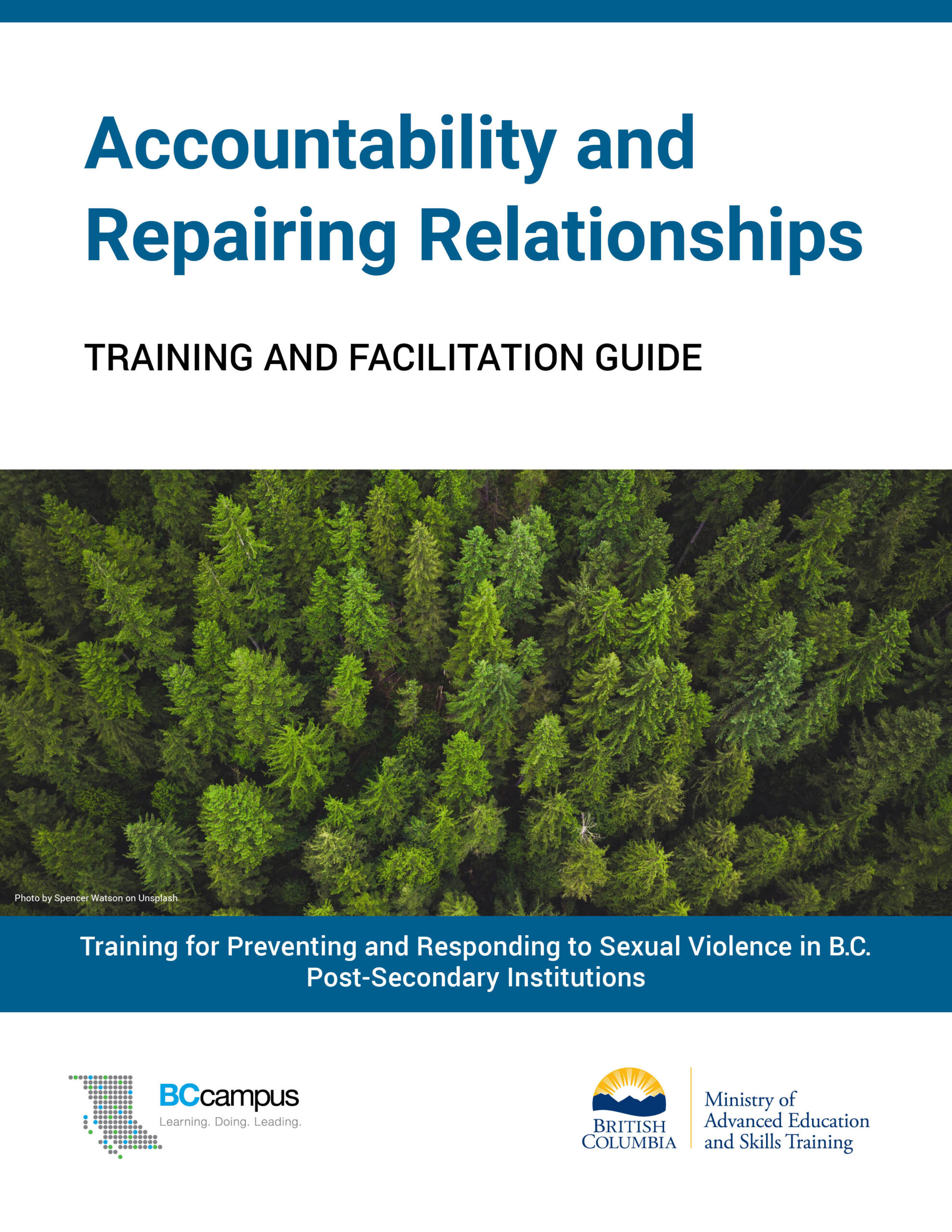
Accountability and Repairing Relationships: Training and Facilitation Guide
Training for Preventing and Responding to Sexual Violence in B.C. Post-Secondary Institutions
A workshop and facilitation guide to support B.C. post-secondary institutions to prevent and respond to sexual violence. Accountability and Repairing Relationships is a series of four 90-minute workshops for individuals who have been informed that they have caused harm in the context of sexual violence. Designed for one-on-one or small group facilitation, learners are guided through information and reflection activities that help them recognize the harm they have caused, learn how to be accountable, and develop the skills needed to build better relationships and support a safe and healthy campus. (The slide deck that accompanies this resource can be downloaded from the Introduction).
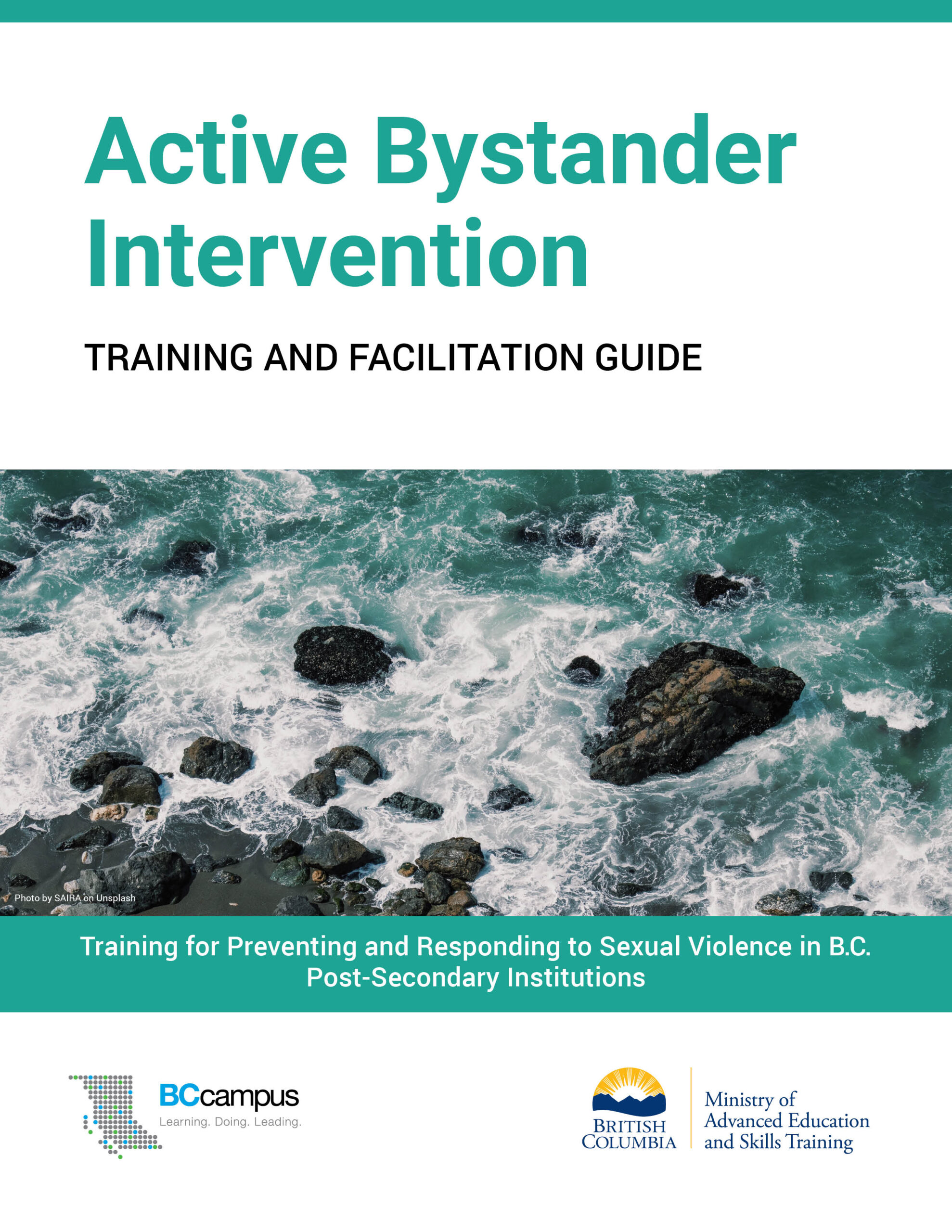
Active Bystander Intervention: Training and Facilitation Guide
Training for Preventing and Responding to Sexual Violence in B.C. Post-Secondary Institutions
A workshop and facilitation guide to support B.C. post-secondary institutions to prevent and respond to sexual violence. Active Bystander Intervention is a 90-minute workshop for all members of the campus community: students, faculty, administrators, and staff. This training helps learners acquire the knowledge and skills needed to recognize and intervene in an incident of sexual violence as well as discuss strategies for creating a safer campus community. Uses the 4D’s (Direct, Distract, Delegate, Delay) Active Bystander Intervention Model. (The slide deck that accompanies this resource can be downloaded from the Introduction).
Asynchronous Training
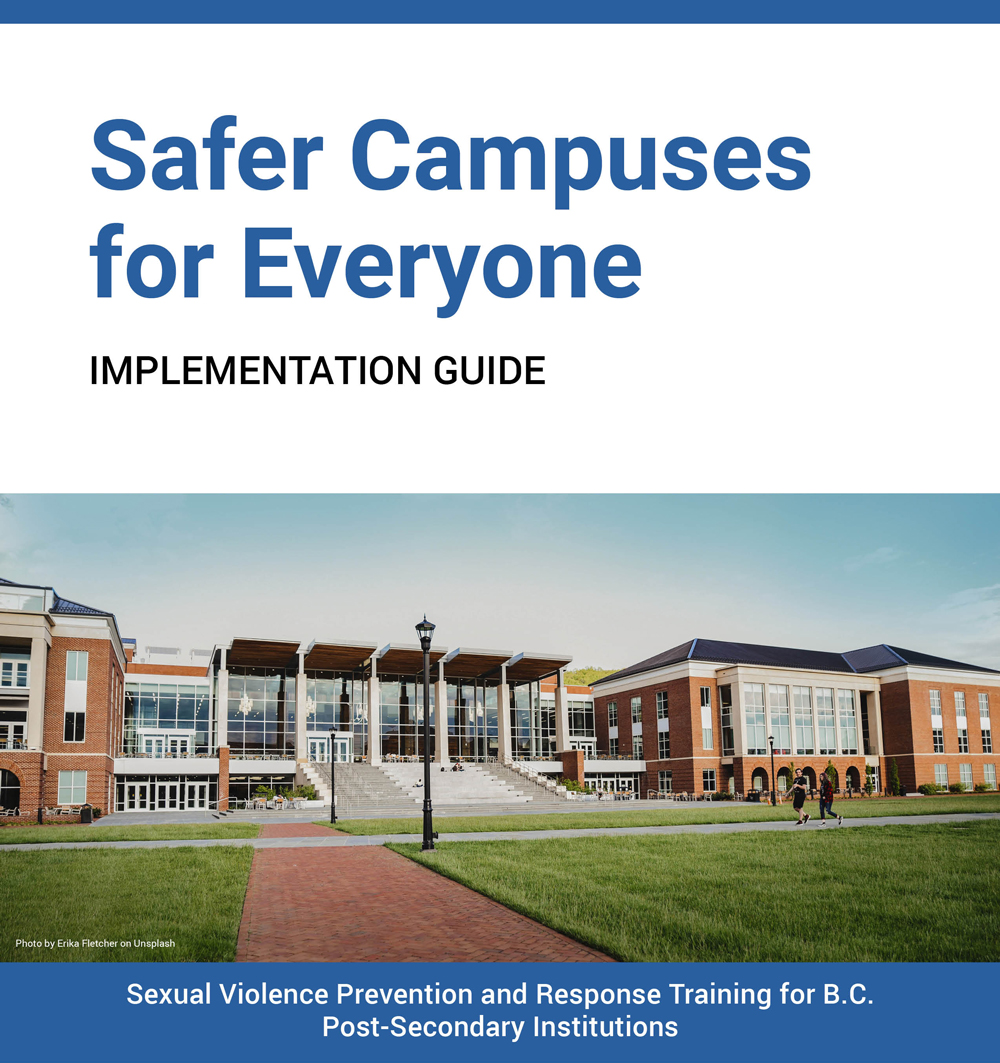
Safer Campuses for Everyone
Sexual Violence Prevention and Response Training for B.C. Post-Secondary Institutions
The Safer Campuses for Everyone training is a 75-minute online, self-paced, non-facilitated training developed in an e-learning program called Articulate Rise. Individuals who work in B.C. post-secondary institutions can adapt the course content in the Articulate Rise program and then share the course with learners through a learning management system such as Moodle, Blackboard, Canvas, or D2L.
Plain Language Supports Resource
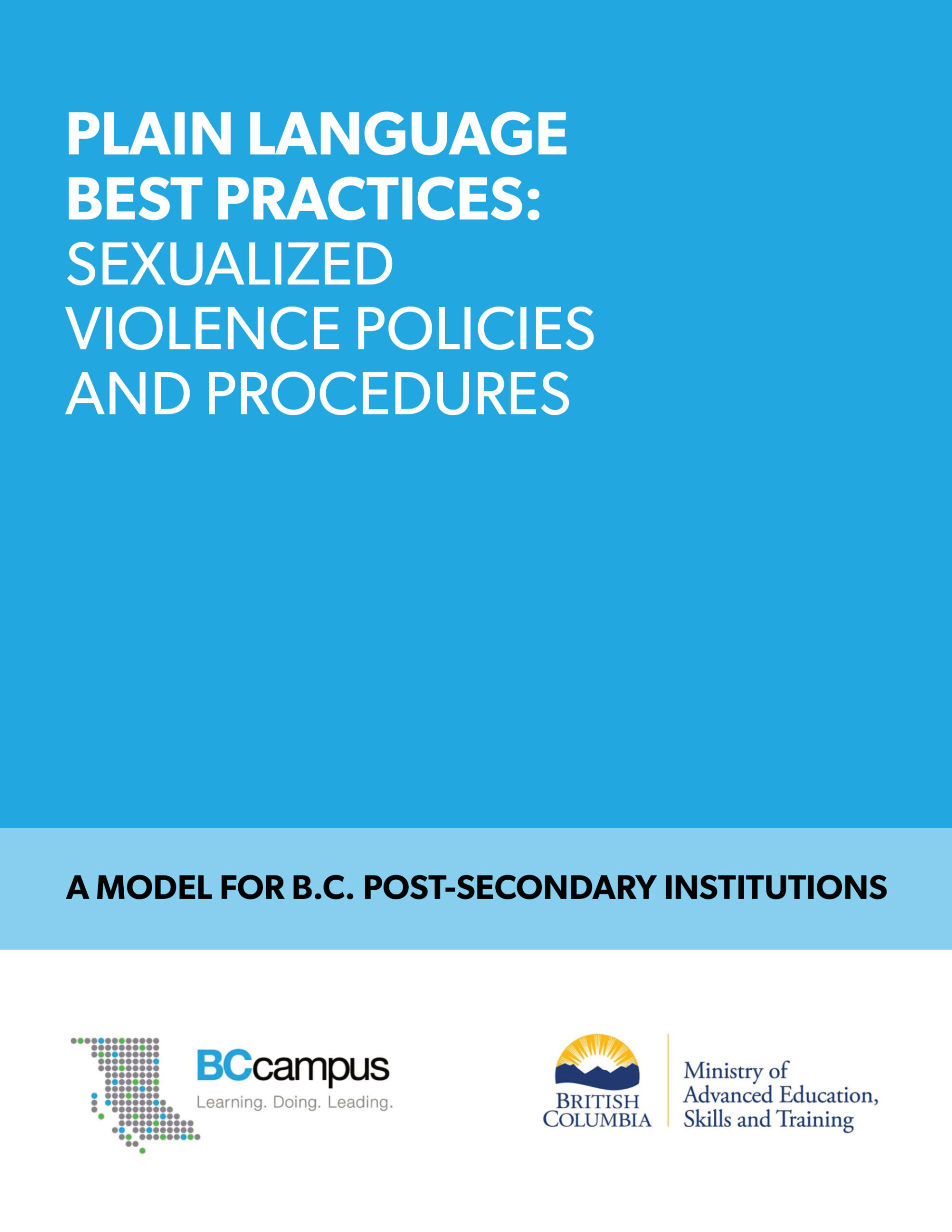
Plain Language Best Practices: Sexualized Violence Policies and Procedures
A Model for B.C. Post-Secondary Institutions
This plain-language resource is a model for how British Columbia post-secondary institutions can craft and review their policies on sexualized violence.
Webinars and Resources
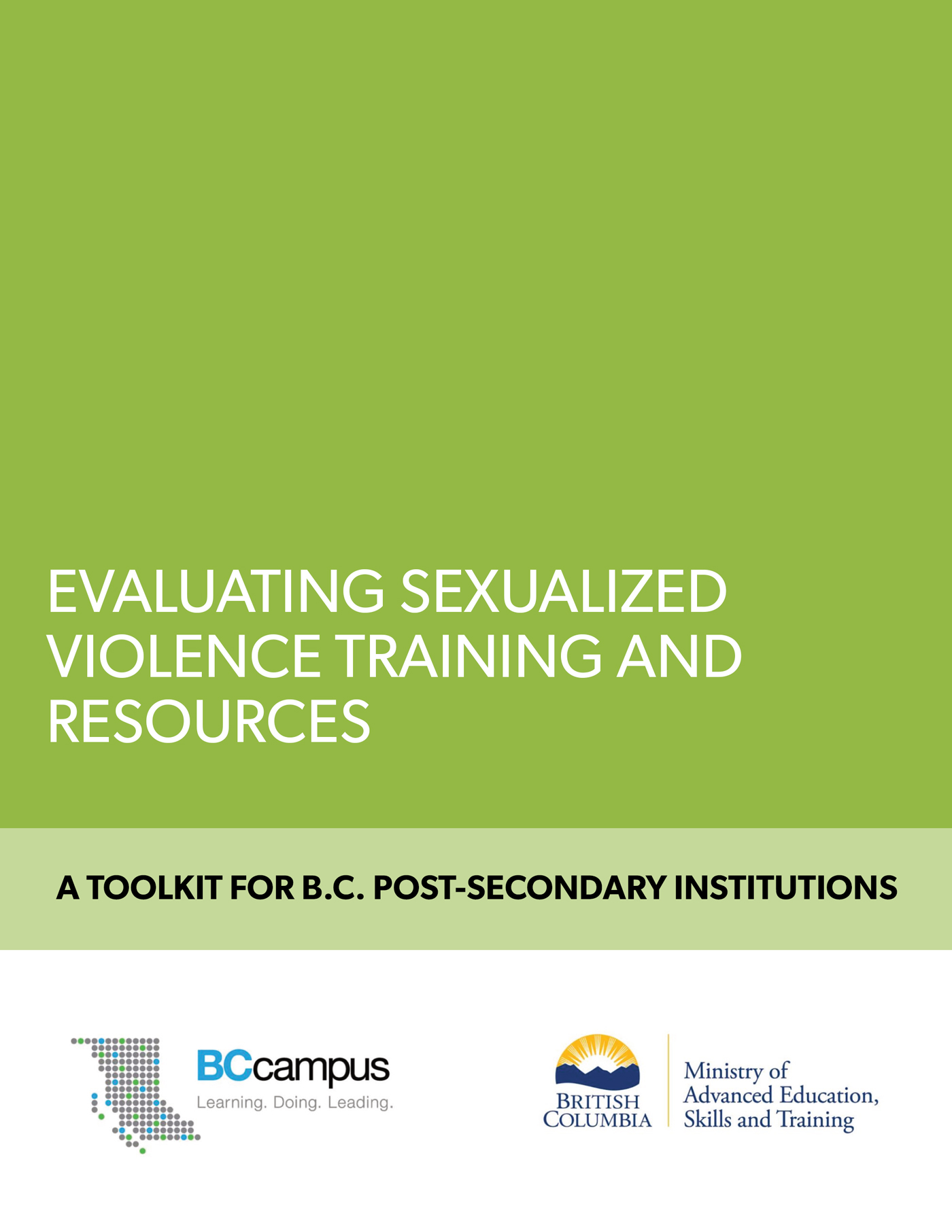
Evaluating Sexualized Violence Training and Resources
Subtitle: A Toolkit for B.C. Post-Secondary Institutions
The purpose of this toolkit is to assist B.C. post-secondary institutions with evaluating and selecting resources to support their ongoing planning and delivery of training on sexualized violence.
Resources:
- Technology-Facilitated Sexual Violence Resources
- 16 Ways to Get Started with Open Educational Resources on Sexual Violence Prevention and Response
Webinars:
- Accountability and Repairing Relationships: Part 1
- Accountability and Repairing Relationships: Part 2
- Active Bystander Intervention – Facilitator Workshop
- Consent and Sexual Violence Facilitator’s Workshop
- Moving Forward Together: Building Capacity to Prevent and Respond to Sexual Violence on Campus
- Moving Forward Together Panel: Creative Partnerships Conversations
- Moving from Men as Allies to Men as Stakeholders (Jan 27)
- Moving from Men as Allies to Men as Stakeholders (Feb 2)
- Preventing and Responding to Sexualized Violence through Sharing and Collaboration
- Supporting Survivors: A Skill-building Workshop for Students During COVID-19
- Supporting Survivors Facilitator’s Workshop
- Technology-Facilitated Sexual Violence: What It Is and How to Help?
- Technology-Facilitated Sexual Violence: What Rights Do Students Have?
- Trauma-Informed Facilitation
